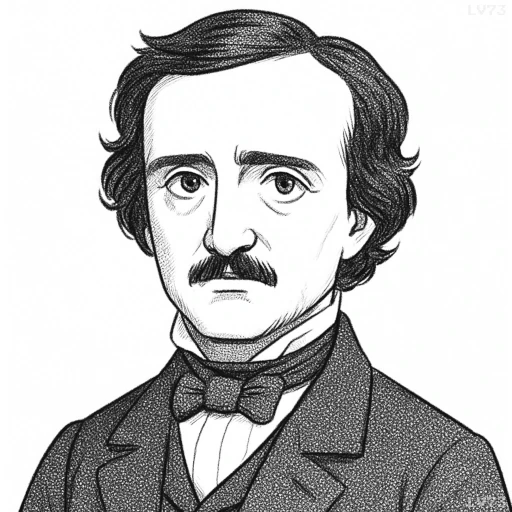“In one case out of a hundred a point is excessively discussed because it is obscure; in the ninety-nine remaining it is obscure because it is excessively discussed.”

- January 19, 1809 – October 7, 1849
- American
- Novelist, poet, critic
table of contents
Quote
“In one case out of a hundred a point is excessively discussed because it is obscure; in the ninety-nine remaining it is obscure because it is excessively discussed.”
Explanation
In this quote, Edgar Allan Poe offers a critique of the way certain ideas or topics are over-analyzed or debated. He suggests that in some cases, a topic may be difficult to understand and therefore discussed at length in an attempt to clarify it. However, in the majority of instances, the more a topic is discussed or debated, the more obscure it becomes, as excessive analysis can often lead to confusion or the obfuscation of the original meaning. Poe’s statement speaks to the paradox that sometimes the more we try to explain or dissect a point, the less clear it becomes, especially when the discussion is taken in too many directions or involves too many voices.
Poe’s observation highlights the limitations of discourse and the complexity of understanding. His idea resonates with his broader views on the mysteries of life, where clarity can sometimes be elusive, especially when trying to make sense of deep, complex issues. In Poe’s time, there was also a growing awareness of the limitations of rational analysis, particularly in relation to more abstract or subjective ideas such as emotion, art, or truth. This quote reflects the Romantic era’s skepticism about the excessive reliance on reason and the importance of intuition or experience in making sense of the world.
In modern terms, this quote can be applied to how overanalyzing topics today, especially in fields like politics, social issues, or even artistic critique, can sometimes lead to paralysis by analysis—where the sheer volume of opinions, perspectives, or debates causes confusion and obscures the truth. Whether in media, academia, or public discourse, the over-discussion of a point can lead to misunderstanding, as it complicates the issue instead of clarifying it. Poe’s words serve as a reminder that sometimes, less is more, and that over-explaining can often get in the way of true understanding.
Would you like to share your impressions or related stories about this quote in the comments section?

